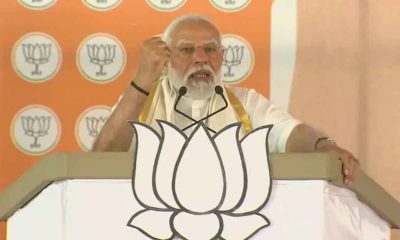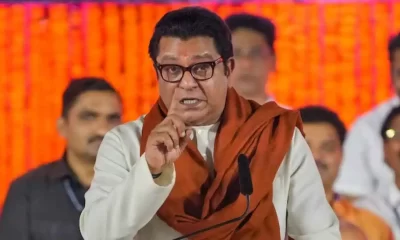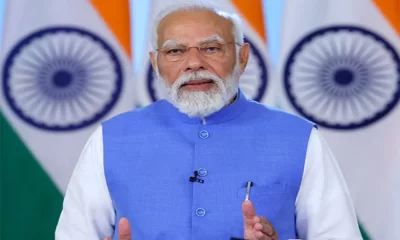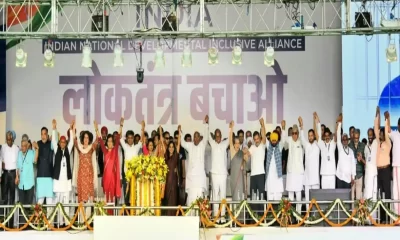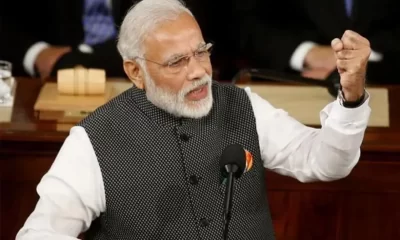India News
‘Good Morning’ messages in India cluttering smartphones, filling up Internet

A Wall Street Journal report pointed out that Prime Minister Narendra Modi also plays a major role in creating the increasing jam in World Wide Web.
With Indians over-obsessed over sending wishes like ‘Good Morning’ messages through different social networking platforms, the popular trend has become a serious problem not just for smartphone users in the country but for others from across the world too. According to a media report, the over-sharing of such messages – along with sun-dappled flowers, adorable toddlers, birds and other graphics – has lead to one in three smartphone users in India run out of space on their phones daily.
According to a report published in the Wall Street Journal, India’s new found love for WhatsApp and sending “good morning” forwards using it is “filling up the internet” like never before. The report further goes on to add that India’s obsession is “driving a 10-fold increase in the number of Google searches for good morning images over the past five years.”
In an in-depth analysis to the problem, researchers of tech giant Google indentified that older generations, trying to keep up pace with the new media, are getting online for the first time — and they are filling up the internet. Many like nothing better than to begin the day by sending greetings from their phones. Starting before sunrise and reaching a crescendo before 8 a.m., internet newbies post millions of good-morning images to friends, family and strangers.
The Wall Street Journal report also pointed out that, not just the ordinary old folk, but the country’s Prime Minister Narendra Modi also plays a major role in creating the increasing jam in World Wide Web.
“Perhaps India’s most famous morning-message enthusiast is Prime Minister Narendra Modi. He gets up at 5 a.m. to practice yoga and is known to fire off good-morning messages as the sun is rising. Last year, he admonished a group of lawmakers for not responding to his greetings,” mentioned the report.
However, in its attempt at taking a dig at the WhatsApp usage habits of Indians, the Wall Street Journal story completely ignores the larger issue – the problem of running resource heavy applications on low-end phones. The problem here is that most phones in the ultra-affordable segment of the market do not come with decent enough specs to run most of the applications available on the app store.
Thankfully, Google is already working towards a fix for that. The tech giant has already put in place plans to bring an OS –Android Go – tailored for use on ultra-affordable phones.
To further tackle the problem, WhatsApp – Facebook’s popular messaging service with over 200 million monthly active users in India – introduced a status message last year, to help users send ‘good morning’ or similar wishes to all their contacts at once.
2024 Lok Sabha Elections
Lok Sabha elections 2024: Google Doodle marks the start of polls with index finger voting symbol
Google released a doodle today, to mark the begining of Lok Sabha Elections 2024 in India.
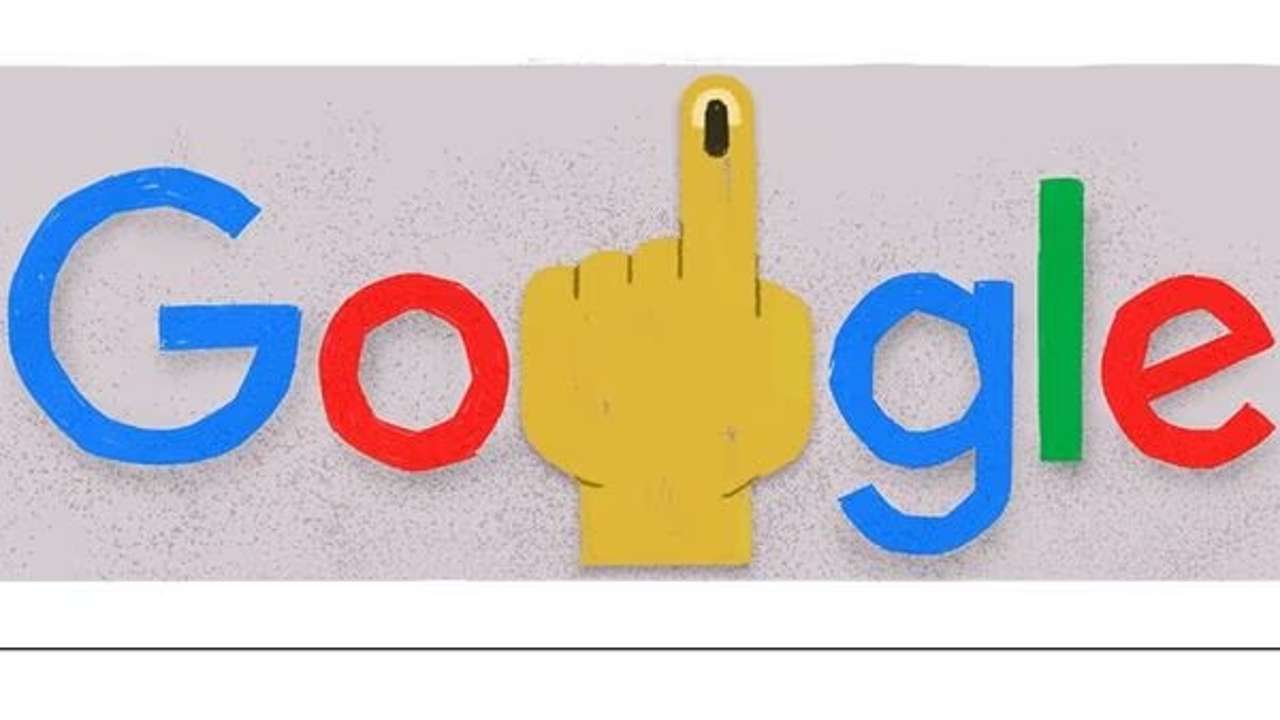
Google unveiled a doodle today, with an inked index finger to commemorate the start of the voting for Indian Lok Sabha elections 2024. This symbolic image represents the country’s ongoing voting process as the general election’s first phase gets under way.
The nationwide availability of this doodle will encourage voters in different states to visit polling booths to cast their votes.
Google Doodles are quick, temporary updates to the Google logo that reflect various national and international topics, such as holidays, significant occasions, and influential people who have had a significant impact on society.
Users can engage in a range of engaging experiences with these Doodles because they are presented in a variety of formats, including photos, animations, slideshows, videos, and interactive games.
Meanwhile, the BJP-led NDA and the INDIA alliance are expected to engage in a fierce contest in this year. 102 constituencies are being covered by elections being held in 17 states and 4 Union Territories (UTs) during 1st phase of election. Over 16.63 crore eligible voters will have 1.87 lakh polling places set up for the first phase of voting. There are 8.4 crore men, 8.23 crore women, and 11,371 voters of a third gender among the eligible voters.
A total of 1625 candidates from various parties will contest in the first phase of elections. Nitin Gadkari, K Annamalai, Jitin Prasada, Jitan Ram Manjhi, Nakul Nath, Gaurav Gogoi, Imran Masood, Karti Chidambaram, Tamilisai Soundararajan, and Dayanidhi Maran are among the important candidates whose fates would be decided today.
The Election Commission of India (ECI) has announced that polling will take place from 7:00 am to 6:00 pm. The results of the voting will pe announced on June 4, as per ECI.
Today, April 19, a number of states, including the Andaman and Nicobar Islands, Sikkim, Tamil Nadu, Puducherry, Uttarakhand, Meghalaya, Mizoram, Nagaland, and portions of Maharashtra, Madhya Pradesh, Uttar Pradesh, Jammu and Kashmir, Tripura, Rajasthan, Chhattisgarh, Manipur, Assam, and Bihar, will hold their first phase of elections.
Voting in Phase 2 is slated to take place on April 26. Phase 3 will take place on May 7, Phase 4 on May 13, Phase 5 on May 20, Phase 6 on May 25, and Phase 7 on June 1.
2024 Lok Sabha Elections
Prime Minister Narendra Modi urges citizens to vote in record numbers as voting for first phase of Lok Sabha elections begins on 102 seats across India
Union Home Minister Amit Shah also urged citizens to vote in large numbers and added that it is not only meant to determine the fate of a Lok Sabha or a candidate but also for shaping a bright future for the country.
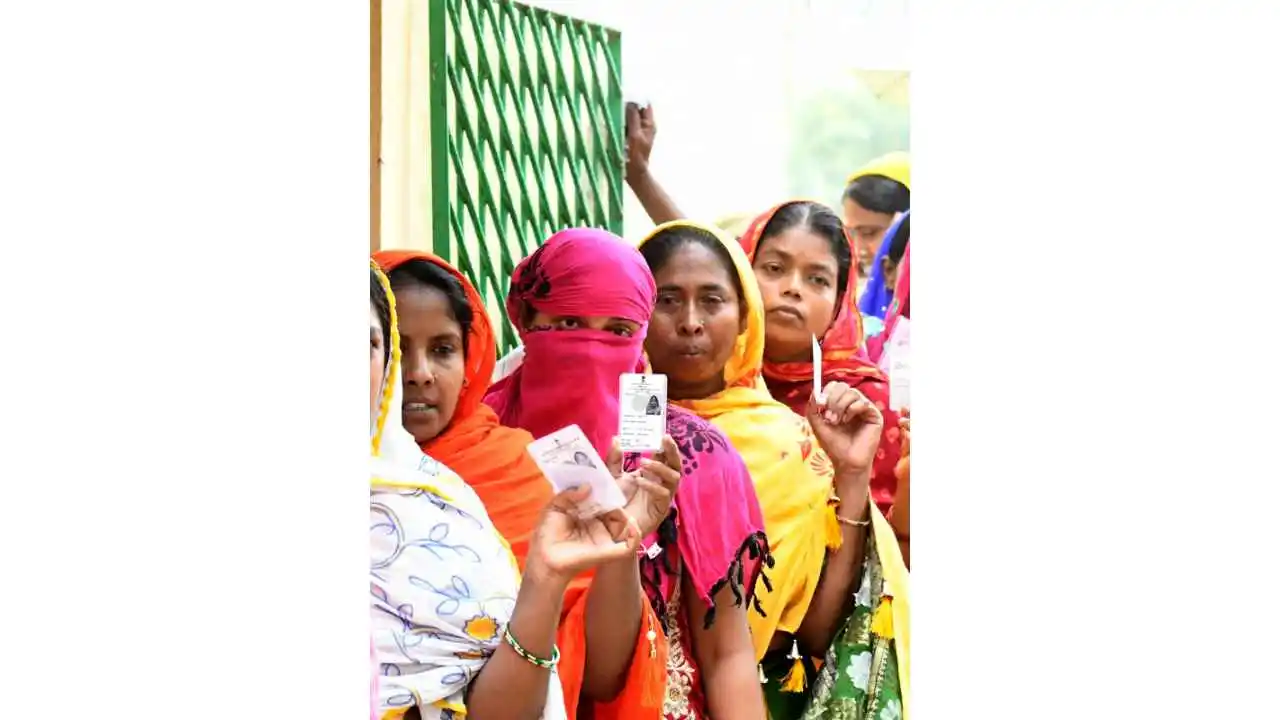
Voting for the first phase of Lok Sabha elections is taking place on 102 seats spread all over India. Prime Minister Narendra Modi took to X and urged citizens to vote in record numbers. He said he particularly called upon the young and first time voters to vote in large numbers. He added that every vote counts and every voice matters.
Congress leader P Chidambaram and RSS supremo Mohan Bhagwat cast their votes in Chennai and Nagpur, respectively. Chidambaram was confident that INDIA bloc will sweep all 39 seats in Tamil Nadu. Union Home Minister Amit Shah also urged citizens to vote in large numbers and added that it is not only meant to determine the fate of a Lok Sabha or a candidate but also for shaping a bright future for the country.
He appealed to all the voters who are voting in this phase to vote in large numbers because every vote of theirs has the power to create a secure, developed, and self-reliant India. He appealed to the people to choose a strong and decisive leadership that has shown the determination to free the country from corruption, nepotism, and appeasement while fulfilling its promises.
In the first phase, elections are being held on all seats in Uttarakhand (5), Tamil Nadu (39), Meghalaya (2), Arunachal Pradesh (2), Mizoram (1), Puducherry (1), Nagaland (1), Andaman and Nicobar Islands (1) and Lakshadweep (1), Sikkim (1). Besides, there is voting in 8 seats in Uttar Pradesh, and Maharashtra, 6 seats in Madhya Pradesh, 12 seats in Rajasthan, 4 in Bihar, 2 in Manipur, 3 in West Bengal, and 1 seat each in Jammu and Kashmir, Tripura, and Chhattisgarh. Assembly elections are also taking place on 60 seats in Arunachal Pradesh and 32 seats in Sikkim.
India News
Enforcement Directorate says Arvind Kejriwal is deliberately eating mangoes, sweets, taking sugar with tea to increase his blood sugar level and create ground for bail
The Enforcement Directorate (ED) made the claim before special judge for ED and CBI cases, Kaveri Baweja, who gave directions to the Tihar jail authorities to file a report in the matter which should also include Kejriwal’s diet chart.
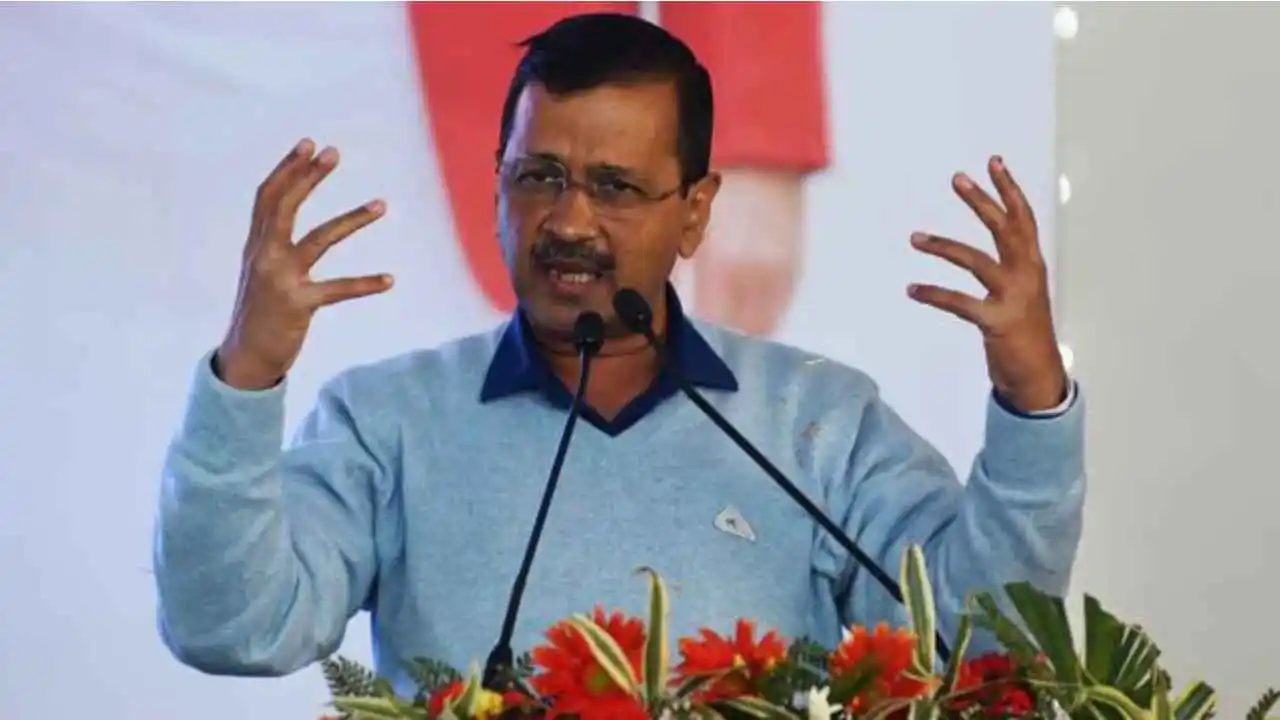
The Enforcement Directorate told the court on Thursday that Delhi Chief Minister Arvind Kejriwal, arrested in liquor policy case, is taking high sugar intake like mangoes and sweets every day deliberately in spite of suffering from type 2 diabetes so that he can create grounds for medical bail. The Enforcement Directorate (ED) made the claim before special judge for ED and CBI cases, Kaveri Baweja, who gave directions to the Tihar jail authorities to file a report in the matter which should also include Kejriwal’s diet chart.
Kejriwal had moved court and also sought permission to consult his regular doctor via video conference because his sugar levels were fluctuating. The judge directed the authorities concerned to file the report by tomorrow, when the court will take up the matter again.
Advocate Vivek Jain, counsel for Delhi CM Arvind Kejriwal responded to the ED’s argument and said this is an issue made by Enforcement Directorate so that home-cooked food should also be stopped. He said this would have a major impact on his health. Advocate Jain added that whatever Kejriwal is eating is as per his doctors prescribed dietary chart. He said the matter is sub judice and they do not have anything to say.
Advocate Vivek Jain objected to the Enforcement Directorate’s submission and said that the agency is making these allegations only for the media. He said that some toffee and other things are given to diabetic patients so that they can maintain their sugar levels. Jain added that Kejriwal is withdrawing his application and will file a better one later.
AAP minister Atishi Marlena said that Arvind Kejriwal had fallen ill and lost about 4.5 kg since his arrest on March 21. She addressed a press conference where the AAP leader said, Arvind Kejriwal is a severe diabetes patient but he never lets his health issue come as the way of his in the service to the nation.
-

 Entertainment20 hours ago
Entertainment20 hours agoBollywood stars Vidya Balan, Kartik Aaryan, Pratik Gandhi, Ileana D’Cruz, Mouni Roy, Radhika Madan, Mrunal Thakur attend Do Aur Do Pyaar premiere
-

 Cricket news18 hours ago
Cricket news18 hours agoHappy Birthday KL Rahul: Suniel Shetty wishes son-in-law KL Rahul on his 32nd birthday
-

 India News22 hours ago
India News22 hours agoReligious outfit vandalises The Blessed Mother Teresa High School in Telangana after teachers object to students wearing Hanuman Deeksha dress
-

 India News23 hours ago
India News23 hours agoClashes erupt during Ram Navami procession in West Bengal’s Murshidabad district
-
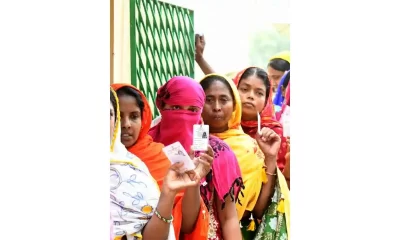
 2024 Lok Sabha Elections1 hour ago
2024 Lok Sabha Elections1 hour agoPrime Minister Narendra Modi urges citizens to vote in record numbers as voting for first phase of Lok Sabha elections begins on 102 seats across India
-

 India News17 hours ago
India News17 hours agoEnforcement Directorate seizes Shilpa Shetty’s husband Raj Kundra’s properties worth Rs 97 crore
-
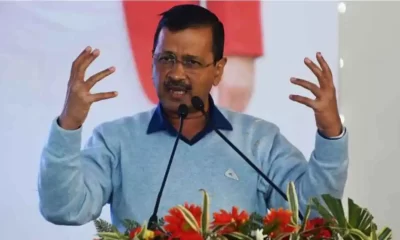
 India News16 hours ago
India News16 hours agoEnforcement Directorate says Arvind Kejriwal is deliberately eating mangoes, sweets, taking sugar with tea to increase his blood sugar level and create ground for bail
-

 2024 Lok Sabha Elections29 mins ago
2024 Lok Sabha Elections29 mins agoLok Sabha elections 2024: Google Doodle marks the start of polls with index finger voting symbol

